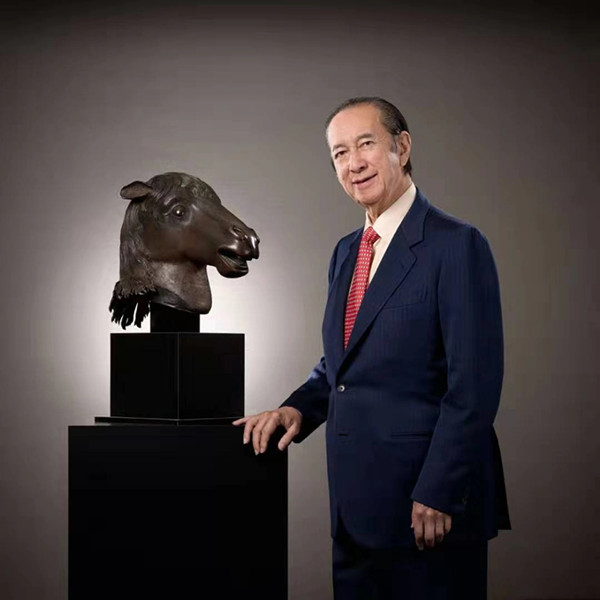HK-Macao entrepreneur Stanley Ho dies at 98
- By Zhang Rui
 0 Comment(s)
0 Comment(s) Print
Print E-mail China.org.cn, May 26, 2020
E-mail China.org.cn, May 26, 2020

Hong Kong-Macao-based Chinese tycoon Stanley Ho Hung-sun died on Tuesday afternoon at a hospital in Hong Kong. He was 98.
Ho died at around 1:00 p.m. local time at Hong Kong Sanatorium & Hospital, his daughter Pansy Ho Chiu-king said at a media briefing outside the hospital.
Born in Hong Kong on Nov. 25, 1921, Ho served three terms as a member of the Standing Committee in the 9th, 10th and 11th National Committee of Chinese People's Political Consultative Conference (CPPCC).
He was a business magnate, investor, patriot, and philanthropist. His grandfather, Ho Fook, was the brother of the great merchant Sir Robert Hotung. Ho was the founder and chairman of SJM Holdings, which owns 19 casinos in Macao including the Grand Lisboa, valued at about $6 billion.
His other businesses included Shun Tak Holdings Limited, the Chinese Recreation Club in Hong Kong, Seng Heng Bank Limited, as well as many other investments and foreign real estates.
Stanley Ho actively contributed to Chinese mainland in various economic and cultural projects, such as donating a fund to build the National Aquatics Center for the 2008 Beijing Olympic Games.
But most notably, he donated lost animal-head bronze statues from the Old Summer Palace to the Chinese cultural relics authorities.
In 2003, Ho bought and donated a pig-head statue of the Old Summer Palace to the Poly Art Museum.
Then in 2019, Ho donated a red bronze horse-head statue to the National Cultural Heritage Administration. It was one of 12 statues in the form of 12 Chinese Zodiac Signs in the Old Summer Palace, the former imperial resort of the Qing Dynasty (1644-1911). In 1860, Anglo-French Alliance Forces invaded, rampaged and burnt down the Summer Palace while looting numerous national treasures.
Ho spent HK$ 69.1 million ($8.8 million) to buy the statue during a Sotheby's auction in September 2007 and publicly exhibited it in Hong Kong and Macao in order to promote patriotism and the need to protect cultural relics. He donated it to China's National Cultural Heritage Administration to mark 70th anniversary of the founding of People's Republic of China and the 20th anniversary of Macao's return to China.






Go to Forum >>0 Comment(s)